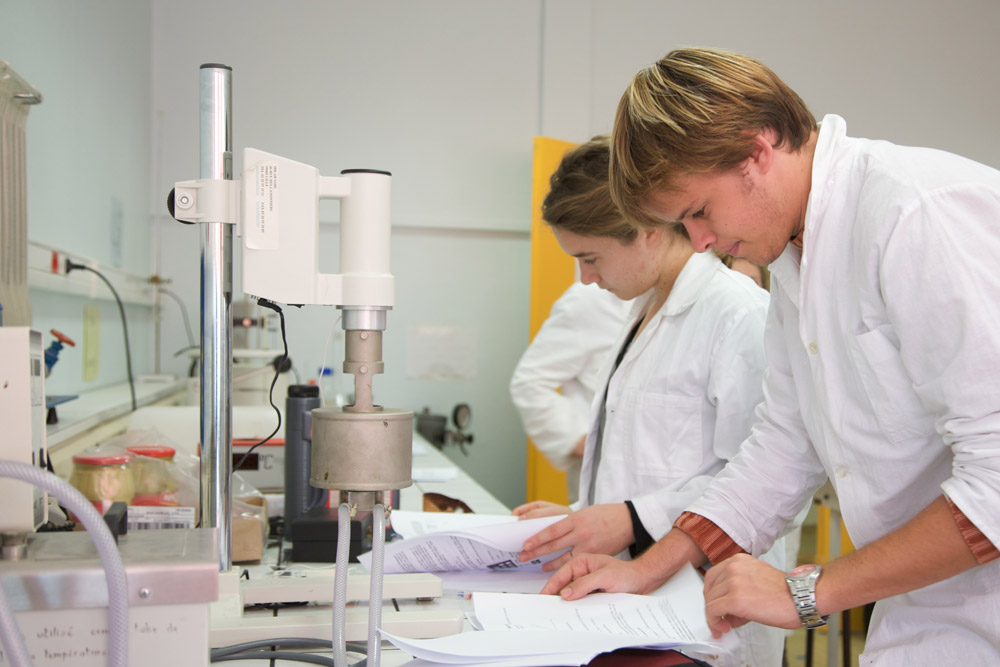
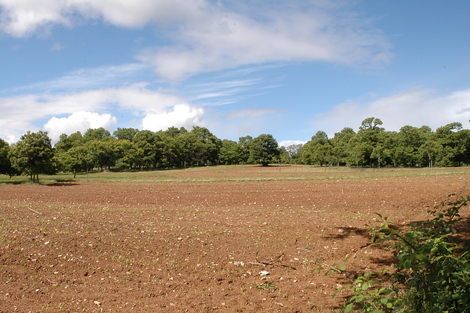
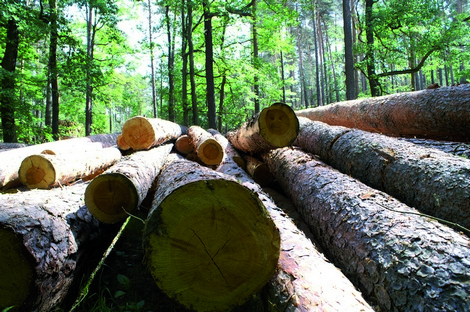
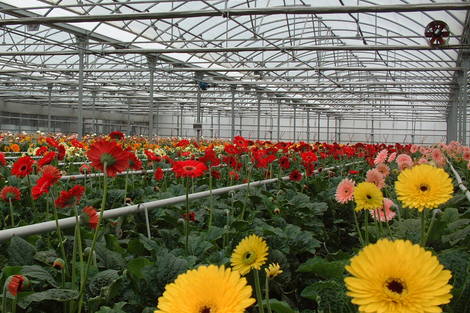
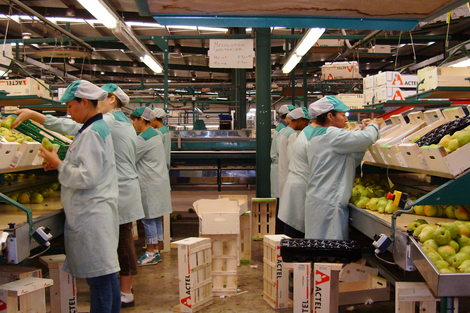
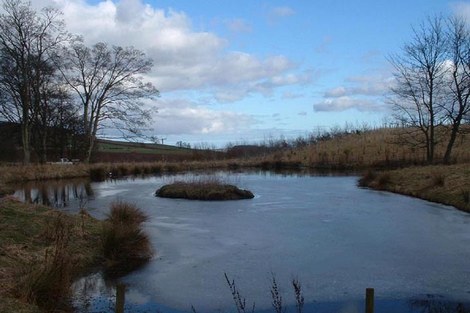
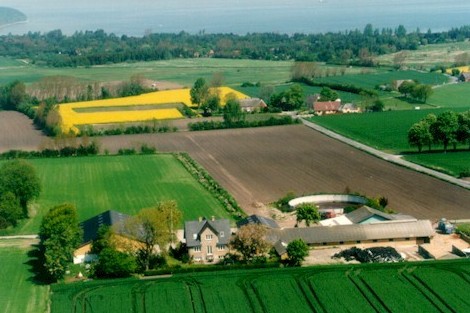
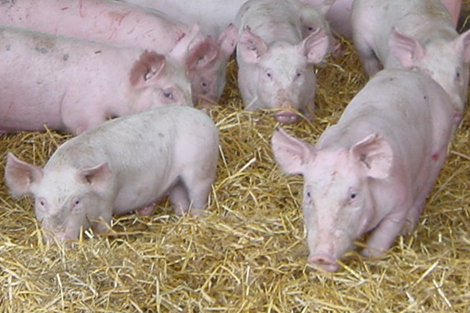
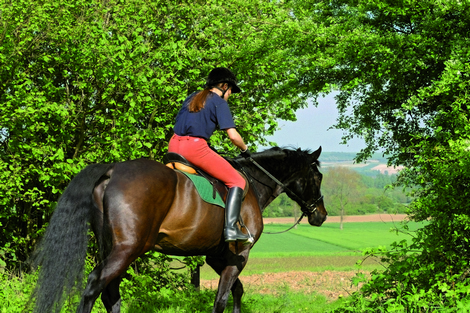

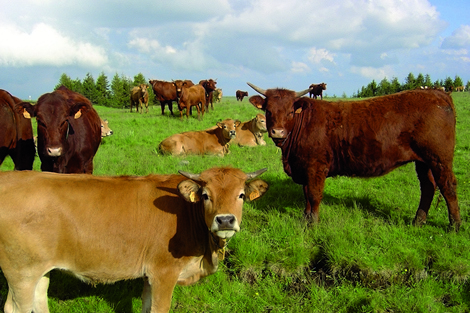
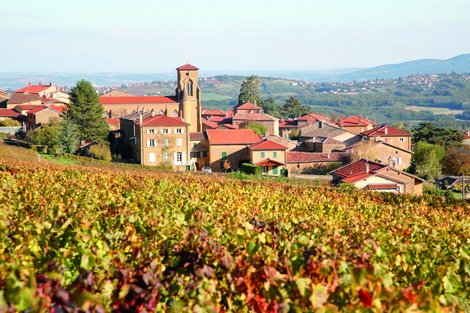

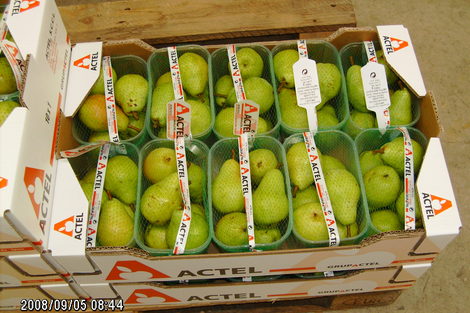
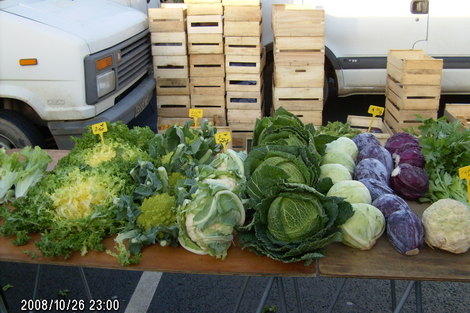
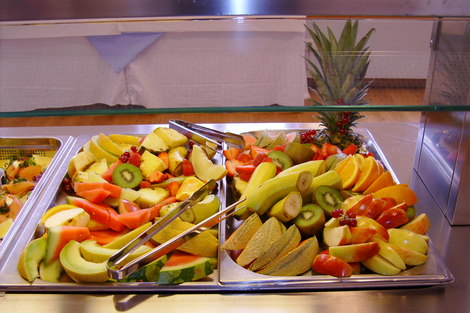
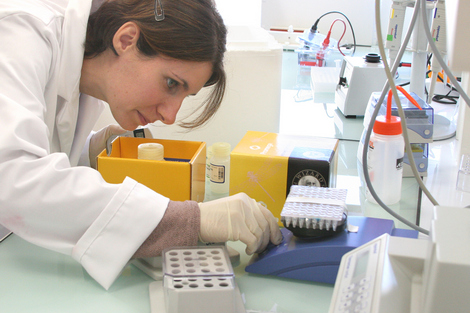
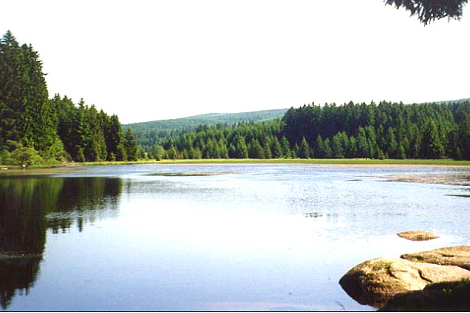








relating to the circular bioeconomy, the sustainable use of natural resources, the protection of the environment and rural development.
We aim to enhance our members' success in education, research and innovation for a sustainable bioeconomy and society, by engaging with European and global institutions and networks, to share experience, cooperate in new ventures, and benefit from the resulting synergy.


























The Forum will be held in the building “Ilse-Wallentin-Haus” (ILWA), at BOKU University, Peter-Jordan Strasse 82, Vienna, Austria
Peter-Jordan Strasse runs left to right at the bottom of the map below. The building of the meeting room is indcated.
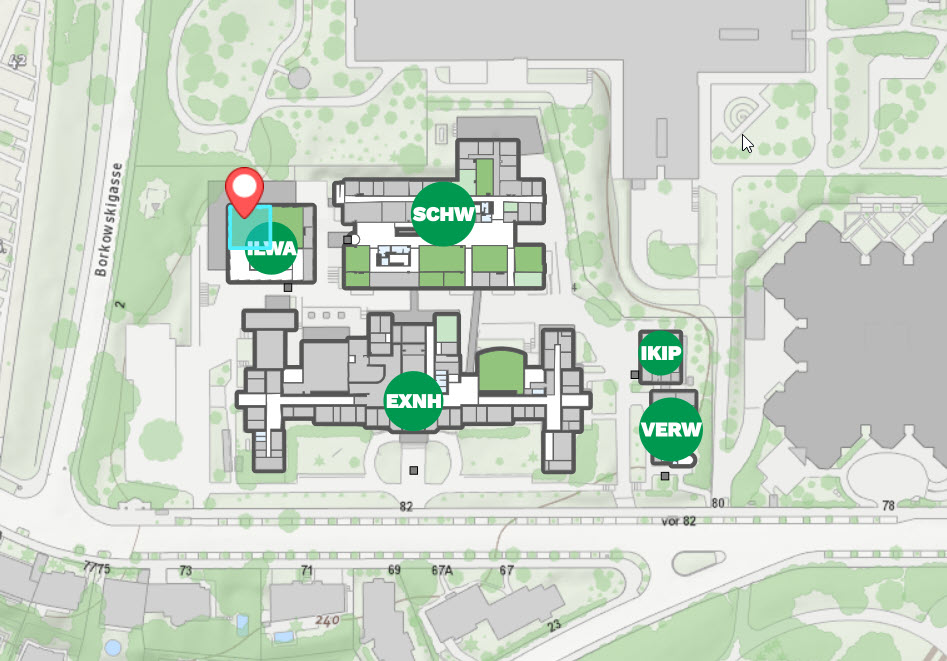
Getting to BOKU
The fastest and cheapest way of moving around Vienna is using public transport. Buses, suburban trains, trams and underground lines will take you almost anywhere in the city in no time at all. Vienna public transport Wiener Linien operates five underground lines, 31 tram and 80 bus lines, of which 21 are night lines. Night lines operate between 00.30 and 05:00.
Tickets for public transport can be bought via the website https://shop.wienmobil.at/en/products or at underground- and train stations. When travelling with trams, a ticket can also be bought on board.
Use the App “WienMobil” to manage your tickets on your phone, and plan your trips within the city.
To reach the Forum venue at BOKU University, in the building “Ilse-Wallentin-Haus” (ILWA), Peter-Jordan Strasse 82, we recommend travelling by public transport: bus line 40A, stop ‘Borkowskigasse’, 37A or 10A, stop ‘Dänenstraße’. Then it is a 3-minute walk to the event venue. If you arrive via the InnerCity Train (S-Bahn) S45 to station “Krottenbachstraße” it is a 15-minute walk to the event venue. If you are staying in the Living Hotel Kaiser Franz Joseph it is a 20 minute walk to the venue.
Bicycle parking spaces are available at the Ilse-Wallentin-Haus. If you require assistance for barrier-free access participation in the event, please contact
If you need to use the car to get to BOKU, use the address Peter-Jordan Strasse 82 to navigate to the BOKU campus and park anywhere. Usually there are enough parking spots available within a 5-minute walking distance. See above point “arrival by car” for more information on parking fees.
1 Arrival by train
Several international and national train services ensure an efficient connection with all over Europe. Travelling to Vienna in comfort and in an environmentally friendly way by train is also possible thanks to an advanced system of night trains that connect Vienna with numerous European capitals. The three main Vienna train stations are centrally located and are well-linked to public transport.
1.1 Vienna Main Station - Wien Hauptbahnhof
Most of the trains arrive at the new Vienna Main Station (Wien Hauptbahnhof). All Austrian Federal Railways (ÖBB) long-distance trains stop here, as well as other international train companies’ trains. Hauptbahnhof is located on top of the subway station “Südtirolerplatz” (U1). Tram D takes you directly to the city centre (Karlsplatz – with connections to U1, U2 and U4). Furthermore, you can take tram O and 18 (to “Westbahnhof”) or buses 13A and 69A. There is also a suburban train (S-Bahn) stop in Hauptbahnhof.
1.2 Vienna Meidling Station – Wien Meidling
All trains reaching Wien Hauptbahnhof stop in Wien Meidling. If you arrive at the train station Wien Meidling you can take the subway U6.
1.3 Westbahnhof
Vienna’s Westbahnhof is the Viennese terminus for trains arriving from Western Europe and Western Austria. The airport bus operated by Vienna AirportLines continues to stop at Europaplatz, in front of the station building. From Westbahnhof, you can take the underground U3 (orange) and U6 (brown) as well as trams 5, 6, 9, 18, 52 and 58.
2 Arrival by Bus
The well-developed public bus network of Postbus connects all Austrian states with Vienna. The main bus station for international long-distance bus carriers, like Eurolines or Flixbus, is located in Erdberg at the VIB – Vienna International Bus Terminal. There, you can reach the city centre by underground U3 (in the direction of “Ottakring”).
3 Arrival by Plane
Vienna’s central position in Europe makes it a hub offering optimal transportation connections to the whole world. The Vienna International Airport (Flughafen Wien-Schwechat) is located in the Federal State of Lower Austria, about 15 kilometres outside of Vienna, and there are several possibilities to reach the city centre.
3.1 Suburban Railway – S-Bahn
Rapid transit railway line S7 departs the airport every 30 minutes and stops at several centrally located stations with transfers to Vienna’s rapid transit railway and subway network. The S-Bahn stops in Wien Mitte – Landstraße (underground U3, U4, suburban railways, buses and trams), Praterstern (U1, U2, suburban railways, buses and trams), Handelskai (U6, S45, suburban railways and buses) and Florisdorf (U6, suburban railways buses and trams). A ride takes approx. 20 – 45 min depending on your destination. A one-way ticket to Vienna costs 4,30€ and includes also the use of public transport in the city. Check timetables and fares online.
3.2 ÖBB Railjet
The Railjets of Austrian Federal Railways (ÖBB) run non-stop from Vienna Airport to Vienna Main Station and Wien Meidling Station. The Railjets carry you quickly twice an hour from Vienna Airport to Vienna Main Station (U1) in 15 minutes, or to Wien Meidling Station (U6) in about half an hour. A one-way ticket to Vienna costs 4,30€ and includes also the use of public transport in the city. Check timetables and fares online.
3.3 City Airport Train – CAT
The City Airport Train – CAT is the quickest connection from the airport to downtown Vienna and plies between the airport and the city every 30 minutes. It takes approx. 15 minutes to reach the station Landstrasse / Wien Mitte (connections to U3, U4, rapid transit railway, buses, suburban railways, and trams) but it will cost 14,90€ for a one-way ticket and 24,90€ for a round-trip ticket.
3.4 Bus
The Vienna AirportLines operates several bus lines between Vienna’s city centre and Vienna’s International Airport. The connection between Wien Westbahnhof and Vienna International Airport takes approx. 20 – 45 minutes depending on the traffic, with a one-way ticket cost of 9 €, and a round-trip cost of 15 € (tickets can be bought directly on the bus or online).
4.4 Arrival by Car
Vienna has short-term parking zones. Parking vouchers (“Parkscheine”), to be filled in and placed behind the windscreen, are available at tobacco shops (“Tabak-Trafik”), railway stations, ticket machines at underground stations and Vienna public transport offices (Wiener Linien). Parking within city limits is 2,60€ per hour, and you need to renew your parking voucher every two hours. Parking officers to check up on that are quite common everywhere in the city. You can use the app “Handyparken” to manage your vouchers on your phone: https://www.handyparken.at/.
Programme at BOKU University, Peter-Jordan-Straße 82, Vienna & Local BOKU University Programme Friday afternoon
Download the Rectors and Deans Froum Programme flyer
Day 1. Thursday, 16 October
|
12:00 |
Welcome Lunch – Arrival, registration, and networking |
|
13:00 |
Opening Session Welcome remarks by host university and organising partners Introduction to the theme: "Navigating Complexity: The Role of Life Science Universities" |
|
13:30 |
Setting the Scene: Concepts and Policies Keynote “Defining the Circular Bioeconomy in a Complex World” Keynote “Science-based pathways to policy impact” |
|
14:15 |
EU Update on the Bioeconomy Strategy Presentation from the European Commission on latest policy developments and strategic priorities Keynote “The new EU Life Science Strategy and its implications for Bioeconomy” Keynote "Connecting Policy and Academia: universities’ role in advancing the Circular Bioeconomy” |
|
15:00 |
Coffee break |
|
15:30 |
Beyond Europe: Global Perspectives Keynote “Spotlight on G20 initiatives: Case study from South Africa” Keynote “Uniting Global Bioeconomy Agendas: Insights from the World Bioeconomy Association” |
|
16:00 |
Panel discussion: “How can universities align with and influence EU bioeconomy goals?” Moderator: Marina PINTAR, Dean Biotechnical Faculty, University of Ljubljana, Ljubljana, Slovenia |
|
17:00 |
Wrap-Up of Day 1 Summary of key insights and preview of Day 2 |
|
17:15 |
Closure Forum Day 1 |
|
19:00 |
Reception & Gala Dinner with the Ceremony for the presentation of the ICA Excellence Awards The Gala Dinner and ICA Excellence Award Ceremony will be kindly hosted by the Mayor of the City of Vienna, Dr Michael Ludwig, at the Vienna City Hall (Rathaus), located at Friedrich-Schmidt-Platz 1, 1010 Vienna. The venue can be easily reached by public transportation or taxi. Further logistical information will be shared with participants closer to the event.
Music by BOKUstrings |
Day 2. Friday, 17 October
|
08:30 |
Registration & Networking Arrival and informal discussions |
|
09:00 |
Welcome to Day 2 |
|
09:15 |
Spotlight Session: University Best Practices Interdisciplinary Bioeconomy Studies International Institute of Excellence in Bioeconomy (EXEBIO) Evaluating Policy Strategies for Sustainable Urban Mobility: The Jelgava Municipality Living Lab. Bioeconomy alliance "Plant” Start-ups and spin-offs at KU Leuven supporting bio-based solutions Agribusiness Financial Management and Agricultural Policies R.E.S and Circular Economy Applied in an Academic Community as an Example for Smart Sustainable Development The funding model of the Christian Doppler Research Association at the interface between science and industry |
|
10:30 |
Coffee Break |
|
11:00 |
Interactive and action-driven breakout session Navigating Complexity: How can ICA further support the transformation of the Cirular Bioeconomy |
|
12:15 |
Closing Remarks |
|
12:30 |
End of Forum Networking lunch |
|
BOKU University Local Programme - Exploring Innovation at BOKU Campus Tulln, Friday 17 afternoon |
|
|
13:30 |
Bus departing from BOKU University main campus This visit offers a unique opportunity to explore cutting-edge research and innovation hubs driving advancements in The programme in Tulln:
The excursion concludes at 16:30, with convenient public transport connections available from Tulln to the airport (~1 hour). |
The Faculty of Agriculture is located in Maksimir, Zagreb, see the location
The events will be held at this address:
VI pavilion, ground floor
Faculty of Agriculture
University of Zagreb
Svetošimunska cesta 25, 10000 Zagreb, Croatia
Outline details to connect to the centre of Zagreb and the Faculty of Agriculture are shown below. More detailed instructions will be sent in the joining instructions one week before the start of the ICA Forum.
By Plane
International Franjo Tuđman Airport is located 12 km from Zagreb city centre.
Bus service from the Airport to the Main Bus station is available at the Airport. You can find more information on the Pleso transport website.
From the Main Bus station to the Hotel Dubrovnik: By tram (5 stops, 12 minutes): No. 6 (direction Črnomerec) and get off at the stop: Trg J. Jelačića (the main square)
From the Main Bus station, you can come to the Faculty of Agriculture by tram (8 stops, 20 minutes): No. 7 (direction Dubrava) and get off on the stop: Ravnice. Follow the Walking trail of Paula and Većeslav Pavlek all the way to the VI pavilion (10 minute walk, 750m).
By Train
Zagreb Main railway station (Glavni kolodvor Zagreb) is located in the city centre and all of the trains from Europe are coming to this station.
You can check the train options form your location via the Trainline website.
From the Main Railway station to the Hotel Dubrovnik:
From the Main Railway station to the Faculty of Agriculture:
By tram (12 stops, 25 minutes): No. 4 (direction Dubec) and get off on the stop: Ravnice. Follow the Walking trail of Paula and Većeslav Pavlek all the way to the VI pavilion (10 minute walk, 750 m).
By Bus
Zagreb Main bus station (Autobusni kolodvor Zagreb) is located in Držićeva street, near the Main Railway station. All of the international bus lines are coming to this station.
You can check the bus options on the official station website: https://www.akz.hr/en
We would recommend to use FlixBus, so you can use the FlixBus website as well.
From the Main bus station to the Hotel Dubrovnik
By tram (5 stops, 12 minutes): No. 6 (direction Črnomerec) and get off at the stop: Trg bana J. Jelačića (the main square).
From the Main Bus station to the Faculty of Agriculture
By tram (8 stops, 20 minutes): No. 7 (direction Dubrava) and get of on the stop: Ravnice. Follow the Walking trail of Paula and Većeslav Pavlek all the way to the VI pavilion (10 minute walk, 750m).
We are calling for Short Interventions in the Spotlight Session: Universty Best Practices on Day 2 of the Forum - Friday 17 October,
Your proposal should highlight successful actions, including:
Please prepare a 5-7 minute presentation involving NO MORE than three powerpoint slides. Please submit a brief statement of your intervention to Rasa Pakeltiene at
Ben Durham
Chief director: Bio-Innovation at the National Department of Science, Technology and Innovation, South Africa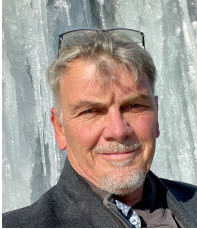 Ben Durham responsibilities include the implementation of the South African Bio-economy Strategy, the ultimate purpose of which is to ensure strategic socio-economic and environmental benefits from bio-innovation. Ben is on various local and international bodies – including the International Advisory Committee on Global Bioeconomy - and is leading the charge on the Bioeconomy Initiative under South Africa’s presidency of the G20 in 2025.
Ben Durham responsibilities include the implementation of the South African Bio-economy Strategy, the ultimate purpose of which is to ensure strategic socio-economic and environmental benefits from bio-innovation. Ben is on various local and international bodies – including the International Advisory Committee on Global Bioeconomy - and is leading the charge on the Bioeconomy Initiative under South Africa’s presidency of the G20 in 2025.
Martin Greimel
Head of the Centre for Bioeconomy, BOKU University, Vienna, Austria  Martin Greimel is coordinating all relevant activities of BOKU related to bioeconomy. He has chaired the European Bioeconomy University Alliance (EBU) till end 2024. He was a civil servant at the Austrian Ministry for Agriculture, Forestry, Environment and Water Management where he was responsible for international cooperation in the field of forestry research and member of a group that developed the Austrian Bioeconomy RTI Strategy. He was coordinator, deputy coordinator and partner in several ERA-NET and other EU Framework Programme initiatives related to bioeconomy and forestry research. From 2004 till 2006 he was a National Expert at the European Commission in the DG Research; Dir Biotechnology, Agriculture and Food Research. He was Vice Chair of the COST Domain Forest, Products and Services and member of the Forest Technology Platform management group.
Martin Greimel is coordinating all relevant activities of BOKU related to bioeconomy. He has chaired the European Bioeconomy University Alliance (EBU) till end 2024. He was a civil servant at the Austrian Ministry for Agriculture, Forestry, Environment and Water Management where he was responsible for international cooperation in the field of forestry research and member of a group that developed the Austrian Bioeconomy RTI Strategy. He was coordinator, deputy coordinator and partner in several ERA-NET and other EU Framework Programme initiatives related to bioeconomy and forestry research. From 2004 till 2006 he was a National Expert at the European Commission in the DG Research; Dir Biotechnology, Agriculture and Food Research. He was Vice Chair of the COST Domain Forest, Products and Services and member of the Forest Technology Platform management group.
Luka Juvančič
Head of Bioeconomy Research Centre, University of Ljubljana, Slovenia  Luka Juvančič is an agricultural and resource economist. He is Associate Professor of Economics of Natural Resources at the Biotechnical Faculty, where he is leading the newly established Centre for Circular Bioeconomy. His research record spans widely in terms of roles (researcher, principal investigator, project leader), research topics (impact analysis and evaluation of agricultural and rural development policies, risk management, environmental and ecological economics, bioeconomy) and methodological approaches (macroeconomic models, spatial econometrics, system modelling, environmental accounting methods, economic experiments). Narrowing down to his work related to bioeconomy, research achievements worth highlighting include the coordination and preparation of evidence base on biomass availability, biomass use and economic performance of bioeconomy in Slovenia (project Bridge2Bio) and BIOEAST region (project BIOEASTsUP). He is a frequent contributor (publications, events) on the topics concerning business models, policies and RDI support for bioeconomy, extending these topics to teaching (course leader, supervisor) and professional work (co-chair SCAR WG Bioeconomy, member BIOEAST TWG Education).
Luka Juvančič is an agricultural and resource economist. He is Associate Professor of Economics of Natural Resources at the Biotechnical Faculty, where he is leading the newly established Centre for Circular Bioeconomy. His research record spans widely in terms of roles (researcher, principal investigator, project leader), research topics (impact analysis and evaluation of agricultural and rural development policies, risk management, environmental and ecological economics, bioeconomy) and methodological approaches (macroeconomic models, spatial econometrics, system modelling, environmental accounting methods, economic experiments). Narrowing down to his work related to bioeconomy, research achievements worth highlighting include the coordination and preparation of evidence base on biomass availability, biomass use and economic performance of bioeconomy in Slovenia (project Bridge2Bio) and BIOEAST region (project BIOEASTsUP). He is a frequent contributor (publications, events) on the topics concerning business models, policies and RDI support for bioeconomy, extending these topics to teaching (course leader, supervisor) and professional work (co-chair SCAR WG Bioeconomy, member BIOEAST TWG Education).
Jukka Kantola
Chair, World Bioeconomy Association Jukka Kantola is a seasoned executive and internationally recognised advocate for the circular bioeconomy, with 30 years of leadership experience across Europe and Asia. As the Founder of the World Bioeconomy Forum and the Chair of the World Bioeconomy Association, Jukka has worked to elevate the global bioeconomy agenda by engaging stakeholders from industry, policy, finance, and research. Jukka’s work focuses on biomass valorisation, bio-based innovation, and fostering global cooperation in support of sustainable development. He regularly contributes to high-level dialogues (e.g., COP, G20) and co-authored the flagship report Financing a Sustainable Global Bioeconomy (2024), outlining strategies to align capital with bioeconomy goals. Jukka hold an eMBA from Rutgers University and a Master’s degree in Engineering from Aalto University.
Jukka Kantola is a seasoned executive and internationally recognised advocate for the circular bioeconomy, with 30 years of leadership experience across Europe and Asia. As the Founder of the World Bioeconomy Forum and the Chair of the World Bioeconomy Association, Jukka has worked to elevate the global bioeconomy agenda by engaging stakeholders from industry, policy, finance, and research. Jukka’s work focuses on biomass valorisation, bio-based innovation, and fostering global cooperation in support of sustainable development. He regularly contributes to high-level dialogues (e.g., COP, G20) and co-authored the flagship report Financing a Sustainable Global Bioeconomy (2024), outlining strategies to align capital with bioeconomy goals. Jukka hold an eMBA from Rutgers University and a Master’s degree in Engineering from Aalto University.
Klara Loch
President, International Forestry Students’ Association – IFSA Theresa Klara Loch is an early-stage researcher and PhD student in forest and environmental policy at the University of Freiburg, Germany. Her research explores social and social-ecological networks in forest governance, taking a relational approach grounded in an interdisciplinary perspective.
Theresa Klara Loch is an early-stage researcher and PhD student in forest and environmental policy at the University of Freiburg, Germany. Her research explores social and social-ecological networks in forest governance, taking a relational approach grounded in an interdisciplinary perspective.
She recently completed her term as President of the International Forestry Students' Association (IFSA) for 2024/25 and has been active in youth, climate justice, and gender equity networks for several years. She is also involved in the IUFRO ForGEDI Task Force, advocating for greater equity and diversity in forest-related fields.
Tapio Määttä
Rector of University of Eastern Finland. Chair of the EBU Presidency. Professor of Environmental Law
Geert Marsmans
Cargill Vice President, R&D FOOD EMEA
Mona-Anitta Riihimäki
Chair of ICA CoP for Bioeconomy Education & Dean at Häme University of Applied Sciences, Finland Mona-Anitta Riihimäki is Dean of the School of Biotechnology and Natural Resources. Mona is Chair of the Committee for Natural Resources Education, of the Rectors’ Conference of Finnish Universities of Applied Sciences. In October 2024 she started to act as a chair of ICA Community of Practice for Bioeconomy Education (CoP Bio-Edu). Lately she has been involved in national assessment of Bioeconomy Higher Education as a evaluation team member (Finnish Education Evaluation Centre FinEEC). In 2025 she’ll continue the work, when the role of sustainability in all education levels will be in FinEEC’s focus.
Mona-Anitta Riihimäki is Dean of the School of Biotechnology and Natural Resources. Mona is Chair of the Committee for Natural Resources Education, of the Rectors’ Conference of Finnish Universities of Applied Sciences. In October 2024 she started to act as a chair of ICA Community of Practice for Bioeconomy Education (CoP Bio-Edu). Lately she has been involved in national assessment of Bioeconomy Higher Education as a evaluation team member (Finnish Education Evaluation Centre FinEEC). In 2025 she’ll continue the work, when the role of sustainability in all education levels will be in FinEEC’s focus.
Caroline Sundberg
Head of The Universities in South Sweden Brussels Representation, Belgium Caroline Sundberg, Head of The Universities in South Sweden (Lärosäten Syd) Brussels Representation. The Universities in South Sweden is a regional platform that brings together Blekinge Institute of Technology, Halmstad University, Kristianstad University, Linnæus University, Lund University, Malmö University and the Swedish University of Agricultural Sciences. The Brussels representations’ role is to increase the profile of the universities at the EU level, to improve the monitoring and influencing of EU policy programmes and to support the building of closer international partnerships. An overall goal is to support an increased participation in the EU Framework Programme for Research and Innovation, Horizon Europe.
Caroline Sundberg, Head of The Universities in South Sweden (Lärosäten Syd) Brussels Representation. The Universities in South Sweden is a regional platform that brings together Blekinge Institute of Technology, Halmstad University, Kristianstad University, Linnæus University, Lund University, Malmö University and the Swedish University of Agricultural Sciences. The Brussels representations’ role is to increase the profile of the universities at the EU level, to improve the monitoring and influencing of EU policy programmes and to support the building of closer international partnerships. An overall goal is to support an increased participation in the EU Framework Programme for Research and Innovation, Horizon Europe.
Caroline is member of The Association of Swedish Higher Education Institutions (SUHF) Working Group on EU-policy and programme initiatives in Research, Innovation and Higher Education, an advisory group to the Expert Group on Internationalisation. Caroline has a background in Higher Education policy and has been based in Brussels since 2017. She has worked both in politics and policy over the years. Caroline is a Lund University alumnus in Political Science and Gender Studies and Erasmus alumni from Sciences Po, Paris.
Peter Wehrheim
Head of Unit "Food Systems and Bioeconomy" DG Research & Innovation, European Commission, Belgium Prior to his present assignment Peter Wehrheim worked for the European Commissioner for Agriculture and Rural Development, Phil Hogan. He is a member of the International Advisory Council to the Global Bioeconomy (IACGB). From 2010 to 2018 he was Head of Unit for Land Use and Climate Finance in Directorate-General for Climate Action. Before 2004, Peter worked at the Universities of Bonn/DE, Maryland/US (with a Heisenberg scholarship of the German Research Foundation) and Kiel/DE. Between 1994 and 2004 he worked as a part-time consultant for the World Bank, Food and Agricultural Organization (FAO), the International Food Policy Research Institute (IFPRI / Washington), the German Bank for Reconstruction (KfW) and other development agencies. He received his doctoral degree (and his habilitation) in agricultural economics from the University of Giessen (University of Bonn, Germany) and comes from a vinery in southern Germany.
Prior to his present assignment Peter Wehrheim worked for the European Commissioner for Agriculture and Rural Development, Phil Hogan. He is a member of the International Advisory Council to the Global Bioeconomy (IACGB). From 2010 to 2018 he was Head of Unit for Land Use and Climate Finance in Directorate-General for Climate Action. Before 2004, Peter worked at the Universities of Bonn/DE, Maryland/US (with a Heisenberg scholarship of the German Research Foundation) and Kiel/DE. Between 1994 and 2004 he worked as a part-time consultant for the World Bank, Food and Agricultural Organization (FAO), the International Food Policy Research Institute (IFPRI / Washington), the German Bank for Reconstruction (KfW) and other development agencies. He received his doctoral degree (and his habilitation) in agricultural economics from the University of Giessen (University of Bonn, Germany) and comes from a vinery in southern Germany.
Elena Zepharovich
Scientific Officer, EC Joint Research Centre (GRC) Ispra, Italy Elena Zepharovich is a project officer working within the Land Resources and Supply Chain Assessments Unit on bioeconomy-related projects. She holds a PhD in Geography and Sustainable Development from the University of Bern, where her research addressed deforestation and environmental justice in Argentina’s Chaco region. At JRC, she develops innovative methods to assess land-based biomass sustainability, aligning with EU policies aimed at balancing biomass production, biodiversity preservation, and climate mitigation. She also contributes to policy analysis efforts supporting the European Green Deal and biomass policies.
Elena Zepharovich is a project officer working within the Land Resources and Supply Chain Assessments Unit on bioeconomy-related projects. She holds a PhD in Geography and Sustainable Development from the University of Bern, where her research addressed deforestation and environmental justice in Argentina’s Chaco region. At JRC, she develops innovative methods to assess land-based biomass sustainability, aligning with EU policies aimed at balancing biomass production, biodiversity preservation, and climate mitigation. She also contributes to policy analysis efforts supporting the European Green Deal and biomass policies.
For reference, when selecting your hotel please note that the ICA Rectors and Deans Froum will be held at BOKU University,
Peter-Jordan-Straße 82/II, 1190 Vienna.
Living Hotel Kaiser Franz Joseph
BOKU is pleased to recommend Living Hotel Kaiser Franz Joseph, with which BOKU has a long-standing partnership. The hotel enjoys an excellent reputation for both comfort and service. It is conveniently located for our event. It is within 25 minutes walking distance of BOKU University, and provides easy access to the Gala Dinner venue via public transport.
55 rooms has been reserved exclusively for participants until Friday, 26 September 2026. After this date the remaining rooms will be released, and availability cannot be guaranteed.
Thanks to BOKU's partnership, delegates benefit from a special discounted rate of around 98€ per night single occupancy including breakfast, depending on the room selected. When booking indicate the following reservation codes
Option A: Enter the corporate code BOKU25 in the "corporate box on the booking form" when booking directly on the hotel website;
OR
Option B: Contact the hotel directly by email and mention the booking code BOKU25 and the name of the event ICA Forum 2025 organised by BOKU University.
In addition to the hotel Living Hotel Kaiser Franz Joseph BOKU is pleased to suggest the following three hotels based on excellent reviews and convenient locations, ensuring easy access to the event venues
Boutiquehotel Stadthalle, although slightly further from the university, this hotel is conveniently located along the metro line, providing easy access to the campus and Gala Dinner venues. It is a green-certified hotel. BOKU University also has already collaborated with this in the past. It is the world’s first city hotel with a Zero Energy Balance.
Hotel Am Parkring is a hotel with which BOKU University has also previously collaborated, offering comfortable rooms in a central location.
Hotel Stefanie, which BOKU University has also collaborated, is officially recognised as the oldest hotel in Vienna. While it is a little more distant from BOKU, its central location makes it an excellent base to explore the city.
Please click here and complete the Registration Form for attendance at the ICA Forum to be held at BOKU University, Vienna, Austria, from 16 to 17 October 2025.
The deadline for registration is Thursday 2 October - REGISTRATION IS NOW CLOSED !!
The Registration fee for Forum includes
All meals from lunch on 16 October at the start of the Forum as indicated in the programme and ending with lunch on the second day.
The Registration fee for the 15th ICA Rectors and Deans Forum
The Registration fee for delegates from an ICA Member Institution is 450 €. For a second registration from the same institution the fee is 425€
The Registration fee for delegates NOT from an ICA Members Institution is 500 €. For a second registration from the same institution the fee is 475€
You will be invoiced by the ICA Secretariat for the Registration fee(s).
There is no registration fee for the BOKU University local event in Friday afternoon 17 October.
The deadline for registration is Thursday 2 October.
Please click here and complete the Registration Form
The Registration is managed by the ICA Secretariat
If you have queries please email
If you use an Apple Mac computer, you may experience a problem in completing the Registration Form - this is a known Apple Mac problem. If you experience the problem please contact the ICA Secretariat.
This annual ICA Forum for Rectors, Vice Rectors, Deans, and senior managers of agricultural and life science universities in Europe aims to provide the opportunity to meet, to discuss current issues in the agricultural and life sciences and to exchange views on issues with relevant stakeholders in industry, government and NGOs
ICA invites Rectors, Vice Rectors, Deans, and senior managers in their university, college, school or faculty being responsible for education, research and innovation to participate in the Forum.
In addition, academic/faculty staff and degree programme coordinators are encouraged to participate.